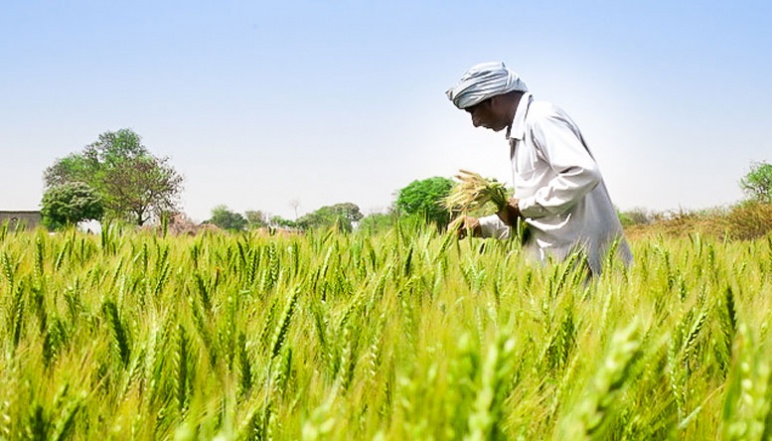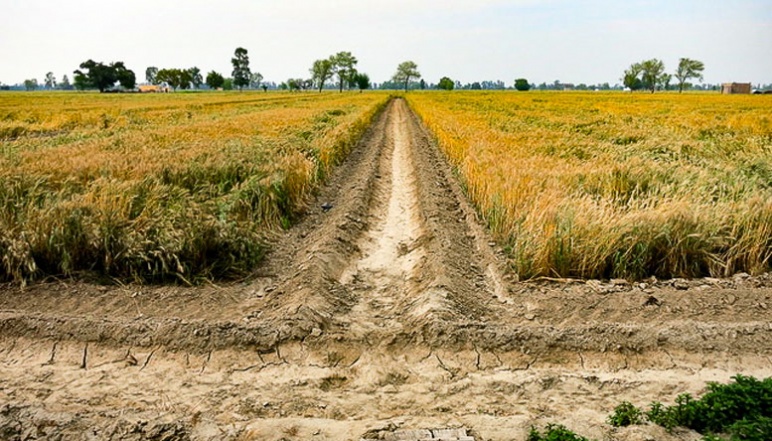Our Research A checklist-based advisory to minimize the cost and duration of worse-before-better in transitioning from chemical to organic smallholder farming

A smallholder farmer tending to his fields

A dirt path flanked by wheat fields
Principal Investigators
Challenge:
How can we minimize the losses of smallholder farmers as they transition from chemical to organic farming practices? How can we best guide their risk perception during this period of transition?
Research Strategy
- Apply a system dynamics model to markets in the Punjab region of India, focusing on the behavioral dynamics of a transition from conventional to organic farming
- Use the model to demonstrate ways farmers can minimize the losses from this transition
- Develop an easy-to-follow check list-based system for farmers in India, drawing on the expertise of the PIs at MIT and IIT Ropar (system dynamics (Vaishnav) and psychology (Singh)
- Conduct experiments to understand the influence of this check-list based advisory on farmer’s established belief system and behavior
Project description
Agriculture, and hence choices made by a farmer, has a significant impact on environmental sustainability. Presently, more than 98% of farmers in India follow conventional farming practices in using chemical fertilizers. They remain hesitant to adopt organic farming despite its promise of greater sustainability and profitability. In this context, the MIT researchers involved in this project have investigated the following question: under what conditions is the transition from conventional to organic farming most favorable to the farmer? With the use of an ethnography-based system dynamics modeling process in Punjab and Haryana, where the problem of chemical overuse is most acute, the MIT team has already demonstrated how factors like the cost of organic farming, time to revive soil health after over fertilization, and rate at which land is converted could be used to achieve the right balance of the duration of and the profits lost during the transition for a smallholder farmer. For this collaborative research endeavor, the MIT team led by Chintan Vaishnav will collaborate with a team at IIT Ropar led by Parwinder Sigh focused on converting the existing model-based analysis into an actionable, checklist-based advisory that smallholder farmers can use to guide their risk perception as well as action during the transition period from conventional to organic farming practices. The goal is to reduce the complexity of the system and focus its development on language and structures that can transform established belief systems of farmers in the Punjab region in order to influence their behavior to ease the transition to more sustainable, organic farming practices.
Outcomes
- Observed a significant association between attitudes, subjective norms, perceived behavioral control, awareness, and farmers’ intention to switch to organic farming practices
- Verified the applicability of the theory of planned behavior in the Indian context and highlighted the factors to be targeted to convert the intentions of conventional farmers to organic farming
- Gained insights for policymakers who can plan suitable interventions
- Published a paper in the Journal of Agricultural Education and Extension: Competence for Rural Innovation and Transformation
Publications
Transitioning from conventional to organic smallholder farming among Indian farmers: a psychological perspective
Transitioning from conventional to organic smallholder farming among Indian farmers: a psychological perspective, 2023
Additional Details
Impact Areas
- Food
Research Themes
- Sustainability & Adaptation
- Soil Fertility & Crop Productivity
Year Funded
- 2020
Grant Type
- MIT - IIT Ropar Grant
Status
- Completed


